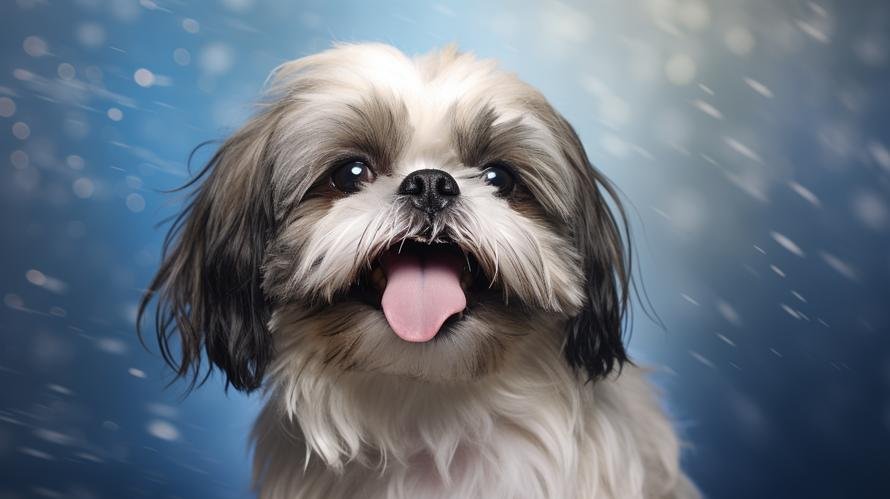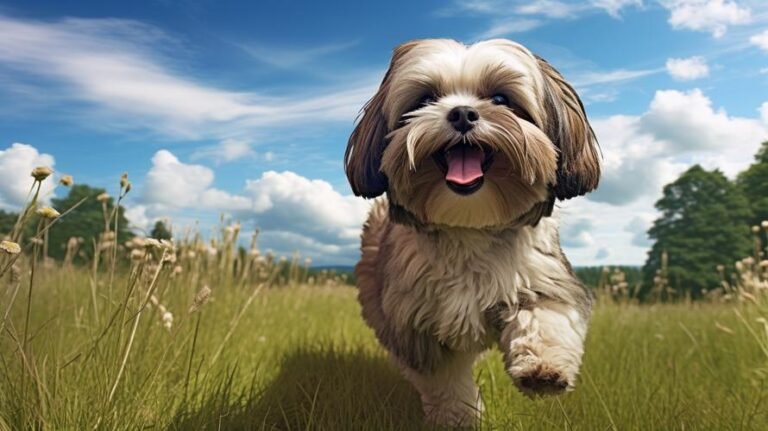Imagine that you’re at a high-class party, donned in your finest attire. Everyone is enjoying the extravagant spread of caviar, sparkling elderberry drinks, and melt-in-your-mouth chocolate soufflé. But what commands attention is the elegant lady accompanied by a small, fluffy dog with a surprisingly dignified poise. Meet the Shih Tzu—the aristocrat of the dog world, renowned for their elegance, charm and surprising resilience hidden beneath their luxurious, double-layered coat.
Interestingly, these little canine aristocrats were staples in the Chinese royalty’s collection of lap dogs during the Ming Dynasty. A part of their royal treatment involved exceptional diet care, not just common kibble. Recognizing this, you might be wondering, “Does a Shih Tzu need special dog food?”
The answer here obliges us to dig back to the time of the emperors, and the secret lies in the underside of the Shih Tzu’s lion-like beauty and their charismatic demeanor.
Firstly, let’s address the elephant in the room: genetics. Shih Tzus have a rather sensitive digestive system, making them prone to specific diet-related issues. Disorders like allergies, dental issues, obesity, and kidney issues are common in this breed. Also, their distinct flat and broad facial structure makes it difficult for them to eat regular kibble, and this is a concern as well. Therefore, their diet needs to be tailored to mitigate these genetic vulnerabilities.
A Shih Tzu’s diet must revolve around easily digestible, high-quality protein with balanced amounts of fat and carbohydrates, packed with key vitamins and minerals. To keep their lush coat in tip-top shape, Omega-3 and Omega-6 fatty acids are essential. Additionally, smaller, specially-shaped kibble sized and textured for the petite Shih Tzu mouth helps them gulp down their meals without difficulty.
Next, we need to consider portion sizes. Although they are a small breed, Shih Tzus have the uncanny ability to pack on the pounds quickly. A portion-controlled diet helps ward off obesity. But how much to feed them? It depends on their age, weight, and activity level. A rule of thumb for an adult Shih Tzu is feeding approximately half a cup of high-quality, specially-formulated dog food, split into two meals per day.
Moving forward, meal times need to be consistent. The Shih Tzu’s sensitive digestive system tends to work best with regular, carefully timed meals. This practice keeps their metabolism steady and their energy levels consistent throughout the day.
Let’s also not forget about the critical issue of hydration. The Shih Tzu’s dense double coat tends to act like an insulator, making them vulnerable to overheating, especially during summer months. Having constant access to fresh water becomes vitally important.
Lastly, a Shih Tzu’s diet should not be static, but change in accordance with their life stage. Puppies have different dietary needs compared to adults or senior Shih Tzus. Puppies grow rapidly, requiring a diet high in protein and fat. As they age, their metabolism slows, and dietary adjustments are necessary to prevent weight gain.
But one must steer clear of the temptation of randomly choosing any ‘special’ dog food. Always consult with your veterinarian or a pet nutritionist for choosing the right diet based on your Shih Tzu’s individual needs and preferences. The perfect diet for them should be a mix of the right nutrients, portion sizes, and an acknowledgment of their unique genetic makeup.
With that, we come to the end of our culinary journey through the world of the Shih Tzu diet. Tailoring their food intake is indeed a special kind of love that ensures their royal flourish.
Indeed, being a Shih Tzu parent isn’t just about pampering them with luxurious grooming sessions or buying designer doggie clothing. It’s about understanding and respecting their inherent nobility by providing the best, and yes, essentially special food for them. After all, every Shih Tzu deserves to dine like the royalty they are!
Get your Shih Tzu’s culinary coronation started today. The royal banquet awaits!



